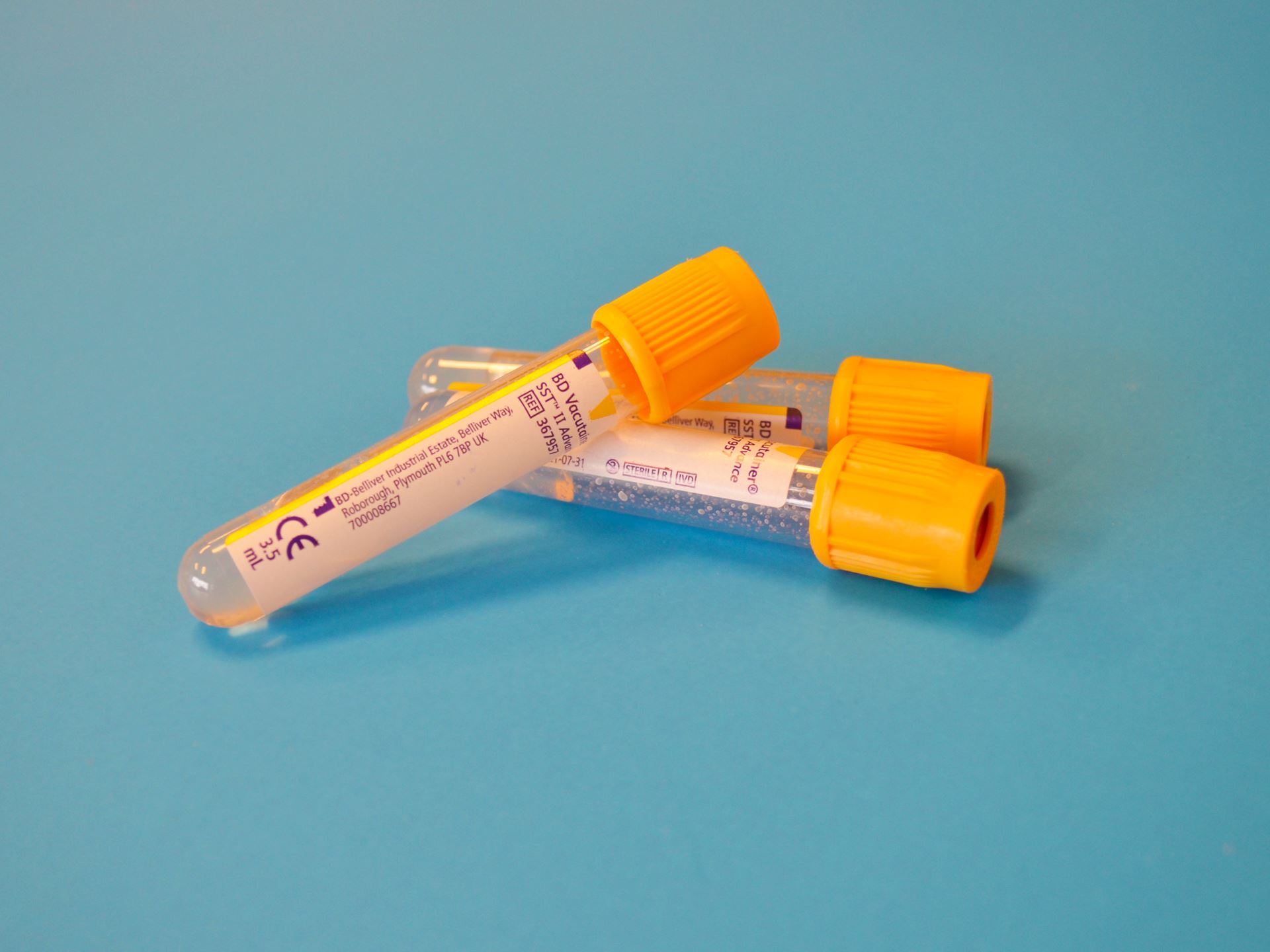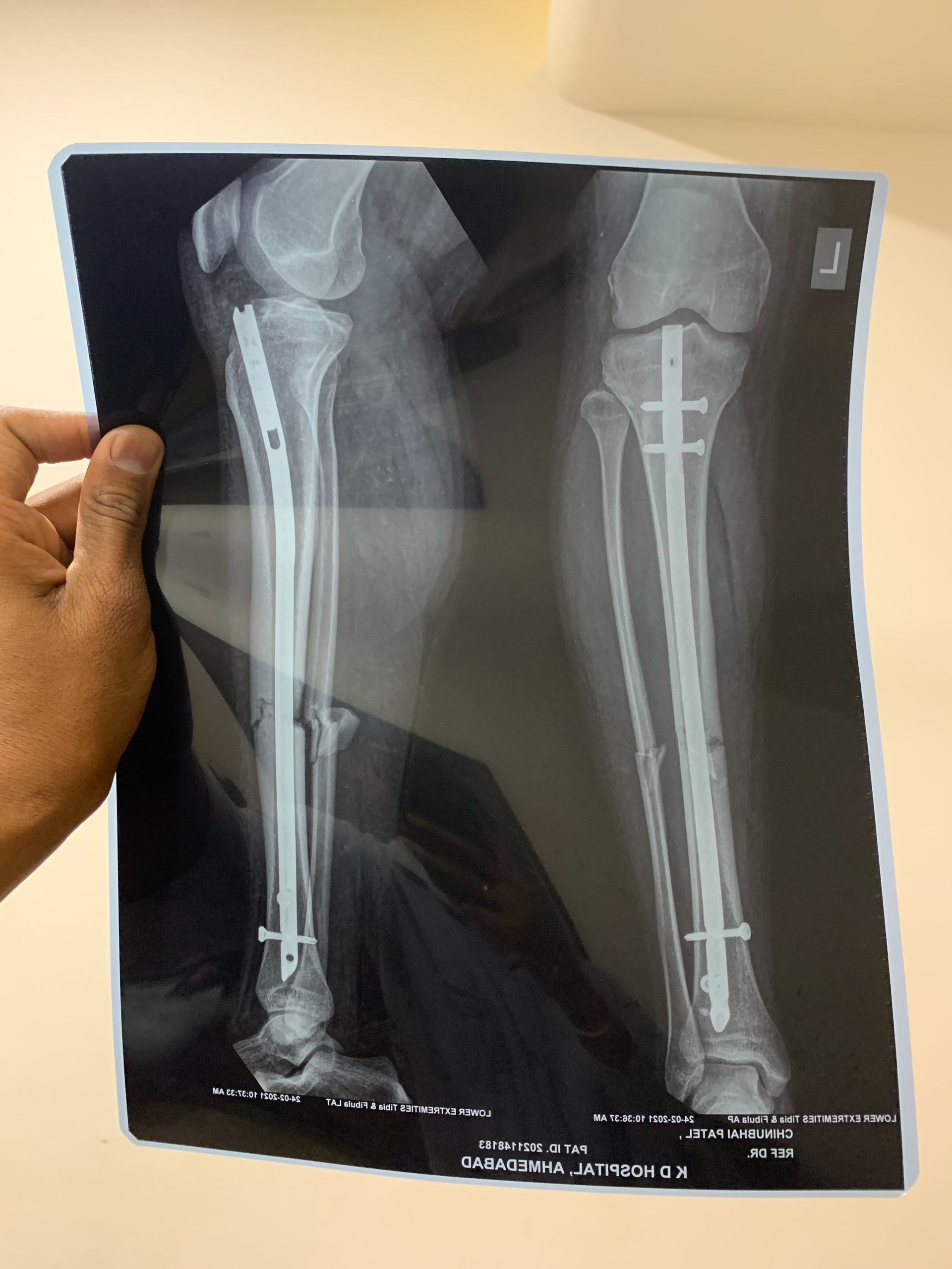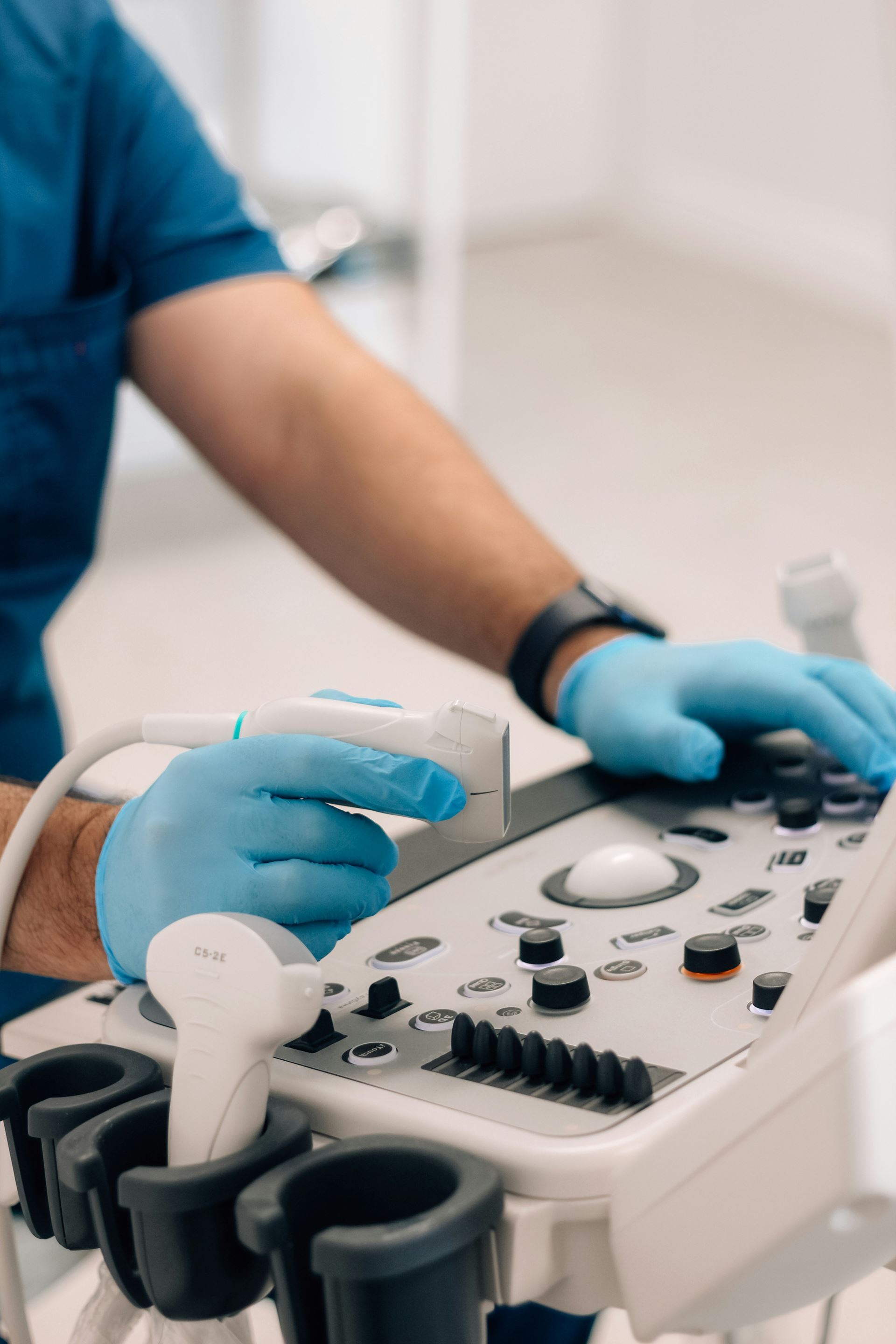Samples and Results
Samples
All samples should be given in to the surgery before 12.30pm, Monday to Friday. We do not keep any samples in the surgery overnight.
Any samples brought to the surgery after 12.30pm will not be accepted.
All samples must be clearly labelled with patients' full name and date of birth. The time when the sample was taken must also be added. All samples must be handed in a clear plastic bag, alongside the form that has been provided with the sample container.
Samples not labelled will not be sent off or analysed by the laboratory. Please seal all containers tightly, samples that leak will also not be tested.

Results of Tests and Investigations
Once a Clinician has reviewed your test results, you can view them;
- in your NHS App
- phone the surgery between 11am to 4pm (line 2) and we will tell you what the results are
- visit our reception desk
Our reception and admin staff will pass on the Clinicians comments on your result. They will not beable to discuss the result in more detail. If you wish to discuss the results further, please submit an online consultation form with your query.
We expect blood and sample results to be actioned within 5 working days. Scans and X-rays will take longer.
If you have the NHS App but cannot see your recent results, please let the surgery know and we will look into this for you.
Please note: tests requested by hospitals or other clinics will recieve your results, as results are returned to the requester. Patients will receive a letter or follow up in due course. The surgery will also be informed of the results at a later date. Please contact your test requester for the results. Unfortuantely the surgery are unable to chase up test results that have been requested by other providers.
It is the responsibility of the patient to contact the surgery for the results of tests arranged by us.
As an NHS-funded GP practice, unfortunatly we are unable to process any laboratory requests, such as blood tests requests, originating from private healthcare providers. This would include tests for IVF treatment or DNA testing.
Our staff are unable to routinely check peoples blood group. You can find out your blood group by giving blood. Please click here for more information.

Blood Tests
A blood test is when a sample of blood is taken for testing in a laboratory. Blood tests have a wide range of uses and are one of the most common types of medical test. For example, a blood test can be used to:
- assess your general state of health
- confirm the presence of a bacterial or viral infection
- see how well certain organs, such as the liver and kidneys, are functioning
A blood test usually involves the phlebotomist taking a blood sample from a blood vessel in your arm and the usual place for a sample is the inside of the elbow or wrist, where the veins are relatively close to the surface. Blood samples can also be taken from the back of the hand.
You can find out more about blood tests, their purpose and the way they are performed on the NHS website.
If you are collecting a blood test form, please make sure you read all the information on the form before attending.
You cannot currently walk-in for a blood test at a hospital or clinic. You can book your blood test appointment online by visiting www.lewishamandgreenwich.nhs.uk.
Alternativly you can call 0208 333 3217 to book a blood test with the Phlebotomy Booking Service. You will get through to the phlebotomy call centre, with advisors able to book appointments at all available locations. The call centre is open Monday to Friday between 8am and 4pm.
We have Saturday appointments available at a local site. Please call the surgery on 0208 300 160, line 1, if you would like to book a Saturday appointment.
Children under 10 from Bexley can get bloods taken from specially trained staff at Queen Elizabeth Hospital or Queen Mary's Hospital in Sidcup.

X-Rays
An X-ray is a widely used diagnostic test to examine the inside of the body. X-rays are a very effective way of detecting problems with bones, such as fractures. They can also often identify problems with soft tissue, such as pneumonia or breast cancer.
If you have an X-ray, you will be asked to lie on a table or stand against a surface so that the part of your body being X-rayed is between the X-ray tube and the photographic plate.
An X-ray is usually carried out by a radiographer, a healthcare professional who specialises in using imaging technology, such as X-rays and ultrasound scanners.
You can find out more about x-ray tests, how they are performed, their function and the risks by visiting the NHS website.

Ultrasound Scan
An ultrasound scan, sometimes called a sonogram, is a procedure that uses high-frequency sound waves to create an image of part of the inside of the body.
An ultrasound scan can be used to monitor an unborn baby, diagnose a condition, or guide a surgeon during certain procedures.
A small device called an ultrasound probe is used, which gives off high-frequency sound waves. You can't hear these sound waves, but when they bounce off different parts of the body, they create "echoes" that are picked up by the probe and turned into a moving image.
This image is displayed on a monitor while the scan is carried out.
You can find out more about ultrasound scans, preparing for a scan and different types of ultrasound scans by visiting the NHS website.
Bone Density Scan
A bone density scan uses low dose X-rays to see how dense (or strong) your bones are. You may also hear it called a DEXA scan.
Bone density scans are often used to diagnose or assess your risk of osteoporosis, a health condition that weakens bones and makes them more likely to break.
As well as being quick and painless, a bone density scan is more effective than normal X-rays in identifying low bone density.
Please visit nhs.uk for more information.
Tests For Heart And Circulatory Conditions
There are many different tests for diagnosing or managing heart conditions.
Please visit www.bhf.org.uk for more information on these tests.
Physiological Measurements Ltd (PML) is a provider of community non-invasive diagnostic services in partnership with the NHS.
If a Clinician refers you for community cardiology, it may be through PML. For more information on the test you are having or to amend or cancel your appointment, please visit www.physiologicalmeasurements.com.
Other Tests
MRI Scan: www.nhs.uk/tests-and-treatments/mri-scan
CT Scan: www.nhs.uk/tests-and-treatments/ct-scan
South East London Breast Screening Service: www.london-breastscreening.org.uk
Cervical Screening: https://www.wecaneliminatecervicalcancer.com/
Bowel Cancer Screening: www.nhs.uk/tests-and-treatments/bowel-cancer-screening
Abdominal Aortic Aneurysm (AAA) Screening: www.nhs.uk/tests-and-treatments/abdominal-aortic-aneurysm-screening
NHS Lung Cancer Screening: www.sel-lunghealthcheck.nhs.uk
Prostate Specific Antigen (PSA) Blood Test: https://prostatecanceruk.org
Spirometary Test: www.nhs.uk/tests-and-treatments/spirometry
Hepatitis C Blood Test: https://hepctest.nhs.uk
QRisk: www.bhf.org.uk/informationsupport/heart-matters-magazine/medical/qrisk
Calculate Your Heart Age: www.nhs.uk/health-assessment-tools/calculate-your-heart-age
Page created: 13 November 2023